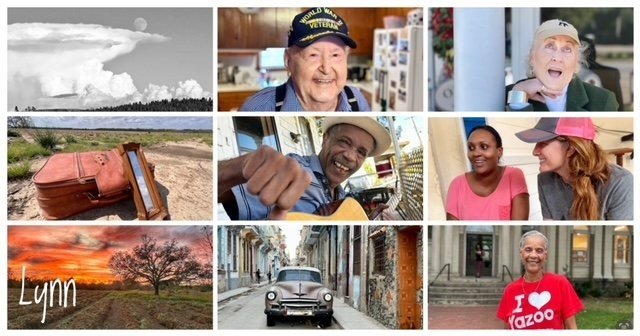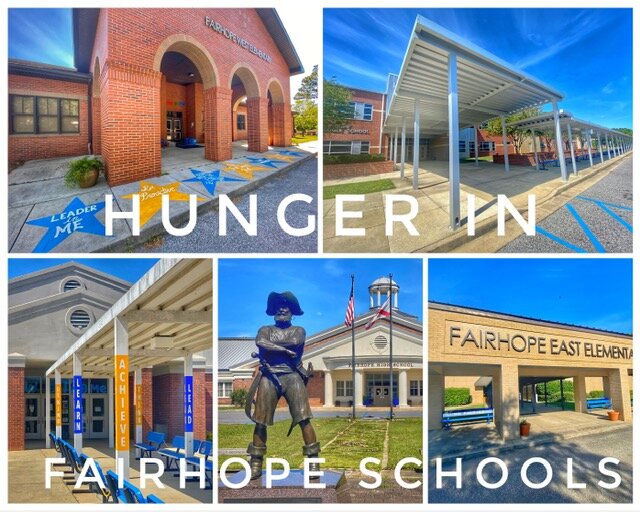The Sounds of Humankind
If a tornado's call sounds like freight trains and bees, humankind's response sounds like growling, determined power saws."
Nine years ago today, I wrote down this line from a story in the New York Times about a family losing everything in the “Tuscaloosa Tornado.”
Our family was living in Tuscaloosa and met volunteers from across the country who brought power saws and determination to cut trees from roads and houses. For weeks that growling through bark and wood was one of the only sounds you could hear.
A mother and son drove from Georgia to give away the food and toiletries they packed into their Honda. A girl in Kentucky donated the money from her lemonade stand to help students from the destroyed Alberta Elementary School.
This is humankind’s response to disasters.
Southern disasters rip off roofs and church awnings. They toss trailers and scatter family photos and children’s art. Sometimes our disasters leave us with little more than the clothes on our backs. But we help our neighbors recover, rebuild, and move on.
The Coronavirus feels different. As the new saying goes, we are in the same storm, but different boats. Some days, it is hard to see the storm.
On the first weekend of reopened beaches, parks, and piers, there were picnics and yoga classes. A driftwood sculpture looked like a cross and a shark and turtle were made of sand. A lady sold lilies on Highway 52. Barefoot girls ran to the Bon Secour River holding bags of towels and bathing suits.
There was a simple wedding on the Fairhope bluff in front of family and a few friends. In the groom's wallet was the camouflage barrette his bride gave him for good luck before a soccer game when they were 12 years old. He knew then that he would marry her one day.
"We planned a big wedding at the Grand, but look at this beautiful day overlooking the bay,” the mother of the bride said. “Life goes on and they will be just as happy."
In Gulf Shores, a mother unloaded chairs and boogie boards for her children. Her husband died nine years ago when their son and daughter were babies, she said. They were moving to Foley from Birmingham to start a new life.
On her ankle was a tattoo with a quote from Up, one of their favorite movies. It read, "Thanks for the adventure, now go have a new one." The "Love Robby" signature was taken from his love letters.
Standing still for a moment, she said, "Feel that sun. I am finally getting my new beginning."
Down the beach, there was dancing to "Thriller" and "Dancing in the Moonlight."
As the sun set at Ft. Morgan, girls tried to spell LOVE with their bodies before the camera snapped. They were high school seniors whose final year finished way too early. Moving past the graduation events they were missing, they were making the most of these final days together.
Meanwhile, news reports say unemployment and the cases of Coronavirus in Alabama are increasing. Should we wear masks or remain at home? Save lives or save the economy?
As ladies gave away free hot dogs at a church close to my house, a man walked by holding Walmart bags. He missed his ride and was walking the five miles home. I drove him the rest of the way.
He was a week shy of 20 years working at Ruby Tuesday when the Fairhope restaurant closed for good. He lives in his family's home but has no car. He took the bus to work, paying $2.50 each way. He can no longer afford bird seed for the cardinals his father used to feed and said he is worried the ramen noodles will run out before he finds another job.
Readers of his story on Our Southern Souls responded with job openings and "how can I help?” One offered a lawnmower to replace the one that was stolen.
A girl left the Food Pantry at Central Presbyterian church in Mobile pushing a stroller loaded with two boxes of meat, produce, beans, and milk. She carried her baby on her hip. As she waited for the light to turn, she said, "This food means love and shows someone cares for those of us who are hungry."
In the line at the Dollar Tree, a woman reached into the cooler for a drink. From behind her mask, she asked the cashier, "Would you like a drink sweetheart?"
This disaster may seem invisible, and our boats may be different, but the sounds of humankind’s response are still here.






